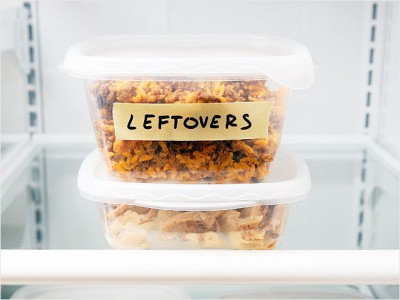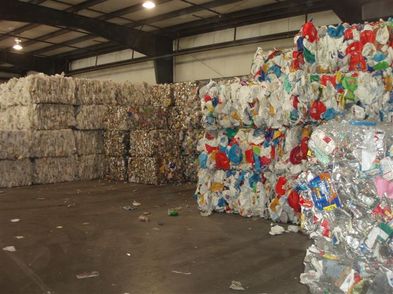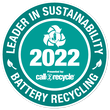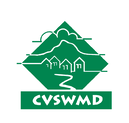Reduce Food WasteAs of July 1, 2020, food scraps are now banned from the landfill in Vermont. This means that all Vermont residents, businesses, and organizations must either compost their food scraps or find a drop-off site or hauler to take them.
The Northeast Recycling Council (NERC) has come up with a list of great tips to help reduce food waste at home. Between 30-40% of food in the US is wasted. Almost half of that is wasted in households. Reduce your impact, save money, and waste less, by getting creative in the kitchen. **An additional tip: Save scraps from prepping veggies (carrot ends, onion skins, garlic skins, zucchini butts, etc.) or meat and bone scraps in the freezer. Add to a large stock pot with water and simmer for a few hours to make a homemade vegetable or chicken stock. It will also make your home smell delicious. For more information on food scraps, composting, and finding drop-off sites and haulers, visit our food scraps and composting page. |
|
Reduce
Vermonters have long held fast to the traditions of thrift and resource conservation. Creating less waste for future generations and keeping our environment clean and healthy is in keeping with those traditions. So how do we reduce waste?
We can start by addressing waste on the front end; that is, by thinking about our own consumption of goods. Before you purchase, ask yourself, "Is this a want or a need?" If you determine it's something you must have, then consider a few questions:
We can start by addressing waste on the front end; that is, by thinking about our own consumption of goods. Before you purchase, ask yourself, "Is this a want or a need?" If you determine it's something you must have, then consider a few questions:
- What type of resources went into making the product? Synthetic chemicals? Recycled or raw materials?
- Where did those resources come from and what is the real cost of obtaining them? Is a local resource available?
- How much energy was used to transport the product to the shelf?
- Is there excess packaging? Can it be easily recycled?
- Is the item built to last or is there a lifetime warranty?
- Does the manufacturer stand behind the product or offer a way to recycle the item through them once you are done with it?
Reuse
There are many ways you can support zero waste and the reuse economy in Central Vermont! You may donate used clothing and household items, cars, and building materials at various locations throughout the region. When you are purchasing an item, consider shopping at area retail establishments specializing in used goods to find what you need. You stimulate the local economy, support your neighbors in need and often part or all of the proceeds go to charitable or community causes! That's a win-win-win for all!
Search:
Search:
- Online classifieds (freecycle, craigslist, local papers)
- Consignment shop
- Used sporting goods
- Thrift stores
- Used book sellers
- Antique shops
- Flea markets
- Yard sales
- Used building and home supply stores
Recycle
Recycling everything we can conserves landfill space, saves raw resources, reduces energy consumption, and often saves manufacturers money. It also helps keep the environment safe and clean for every living being on the planet, and that is the key to our common future!
Think proper recycling and disposal isn't a big deal? Watch this...
Did you know that recycling is mandatory in the Central Vermont Solid Waste Management District?
As of October 1995, CVSWMD has a Mandatory Recycling Ordinance (94-01) requiring the separation of recyclable items from the trash. The items that must be recycled in the CVSWMD comprise a large volume of the recyclable materials entering the municipal solid waste stream. Recycling conserves precious and dwindling landfill space and helps the district reach our Zero Waste goals. And don't forget... it's cheaper to recycle items than to throw them in the trash!
Want to know what to recycle in the CVSWMD?
How does this ordinance affect you?
• Households with waste pick-up: If you have your waste picked up at your home, the hauler is required to provide for collection of recyclables as well as trash.
• Renters: If you rent and the property owner provides trash collection, the property owner is also required to provide for the collection of recyclable items.
• Businesses: The hauler you contract with for trash collection is required to provide recycling collection as well.
• Household self-haulers: the hauler or drop-off location is required to also accept the mandatory recyclable items.
In addition, the hauler, transfer station, or bag-drop is also required to give you a financial incentive to recycle. This means that recycling services must cost less than trash services.
As of October 1995, CVSWMD has a Mandatory Recycling Ordinance (94-01) requiring the separation of recyclable items from the trash. The items that must be recycled in the CVSWMD comprise a large volume of the recyclable materials entering the municipal solid waste stream. Recycling conserves precious and dwindling landfill space and helps the district reach our Zero Waste goals. And don't forget... it's cheaper to recycle items than to throw them in the trash!
Want to know what to recycle in the CVSWMD?
How does this ordinance affect you?
• Households with waste pick-up: If you have your waste picked up at your home, the hauler is required to provide for collection of recyclables as well as trash.
• Renters: If you rent and the property owner provides trash collection, the property owner is also required to provide for the collection of recyclable items.
• Businesses: The hauler you contract with for trash collection is required to provide recycling collection as well.
• Household self-haulers: the hauler or drop-off location is required to also accept the mandatory recyclable items.
In addition, the hauler, transfer station, or bag-drop is also required to give you a financial incentive to recycle. This means that recycling services must cost less than trash services.
|
All households, businesses, schools and municipalities must recycle:
• Unbroken glass bottles and jars - all colors • Tin, steel, aluminum cans • Foil and pie plates • Aerosol cans • Plastics #1 and #2 • Newspaper • Magazines, catalogs, paperbacks • White and colored office paper • Paper mail and envelopes • Brown and colored paper bags • Boxboard • Corrugated cardboard • Phone Books The fee charged to recycle materials cannot exceed 50% of the cost charged to collect the same quantity of trash. |
|




